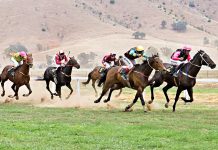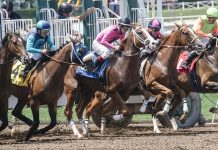Horse Racing has emerged as one of the most followed sports in the United Kingdom in recent times, Racing UK has fans across all cross-sections of society. It is in fact one of the oldest sports, drawing the attention of a wide audience base. Yet, even today, it continues to be popular among the modern masses.
Just like everything else, horse racing has dynamically evolved over the years. With the introduction of technological assistance and immense monetary involvement, horse racing has become an exciting yet sophisticated spectacle for all its enthusiasts.
However, the basics of the sport resonate back to its rich history. It isn't just about the race, but all of the pomp and circumstance that comes with it. Let us race down memory lane and learn more about the glorious history of this marvelous sport.

The Sport of the Kings
During the 12th century, most British knights and kings came back from their conquests with beautiful Arab horses. These horses were bred with the domestic horses, and that led to the emergence of the thoroughbreds we know today. This is the most popular horse still used for horse racing.
The first such race was started by Charles II when he raced two horses against each other in open fields. Gradually, between 1660 to 1685, Newmarket grew as the first horse racing venue in the UK.
In the 1700s, under the reign of Queen Anne, horse racing evolved as a competitive sport between multiple horses. The sport received greater popularity after the founding of The Jockey Club, which brought the horse racing elite together.
Evolution in the 19th Century
1815 saw the establishment of the original five British horse races, which were 2000 Guineas Stakes, 1000 Guineas Stakes, Epsom Oaks, Epsom Derby, and St Leger Stakes. The most recognised British horse race, The Grand National, took place in 1839.
The concept of steeplechase was further substantiated in the year 1865, with the formation of the National Hunt Committee. Thereafter, the National Hunt Steeplechase became a part of an annual race that was conducted across various race tracks in the country.
The Age of Technology
With the advancements in technology, the global scenario was swiftly changing. Horse racing in the UK was no stranger to these developments. The first traces of technological influence started showing explicit signs in the mid-1940s.
Perhaps the greatest evidence of the impact of technology on horse racing was witnessed in 1947 when the very first photo finish happened at Epsom. Previously, judges had to rely on what they saw in order to determine the results of the race.
However, races began to be broadcasted across television networks only after 1951. Prior to this, one had to visit the racecourse in order to catch a race. Owing to the provision of broadcast, horse racing became accessible to individuals from all walks of life and was not just restricted to the elites.
Horse Racing Today
The popularity of horse racing has grown to such extents in modern times that it ranks second among the most-watched televised sport in the UK. Its fan following continues to grow immensely each year, despite the fact that the sport has been around for close to three centuries.
Previously deemed as the “Sport of the Kings,” horse racing caters to a wider audience base, coming from diverse socioeconomic backgrounds. Furthermore, an increasing number of individuals are pursuing it as a lucrative career option as well.
Major Racecourses
Owing to its immense popularity and success over time, 60 official racecourses have been constructed across the UK in order to promote the spirit of the sport further. Interestingly, some of them date back to as early as the 1920s, narrating tales of the gradual transition of the sport.
While most of these racecourses have been converted to turf, there are six all-weather racecourses in the UK, wherein horse races can be conducted throughout the year.
Celebrated Horse Racing Festivals
Typically, the racing season in the UK begins in March with The Cheltenham Festival and concludes with Coral Welsh National, which is organised in the month of December. This itinerary includes the world-famous Royal Ascot, which takes place between June and August.

The Conclusion
Horse racing in the UK has come a long way since its origins and promises to evolve further with the changing times. However, even as the sport continues to evolve, it's nice to take a touch down memory lane to see how it all came to be what it is today.






